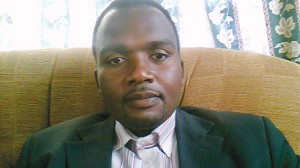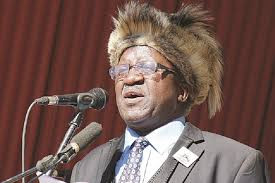

THE RACE does not belong to the swift nor does power belong to the strong, but time and opportunity give thinkers space to dominate world affairs.
Power and wherewithal to dominate world affairs do not dwell within someone physically strong, but a person whose ideas advance the greater nobility and welfare of society.
Ultimately, people who will be celebrated by future generations are not necessarily those who rule their church, company, organisation, country or school with military discipline assisted by an iron fist.
It is people whose ideas lifted the human race to a higher dimension of life and solved nagging human problems that are by right celebrated by future generations.
The man or woman who will conjure a formula for reviving industries in Bulawayo or the whole of Zimbabwe will be celebrated by many Zimbabweans for a long time.
It is true that Sir Isaac Newton died more than 285 years ago (on March 31 1727), but his legacy lives on and his name has been celebrated more than the most dreadful and the most beautiful among the living because of the power of his ideas.
Newton’s first law of motion (there are three in total) for instance has been adapted to many fields of enquiry and scientific endeavour such as environmental studies, economics, operations research, econometrics, astronomy, management sciences and political science to name a few.
The first of Newton’s laws of motion states that “every object in a state of uniform motion tends to remain in that state of motion unless an external force is applied to it”.
- Chamisa under fire over US$120K donation
- Mavhunga puts DeMbare into Chibuku quarterfinals
- Pension funds bet on Cabora Bassa oilfields
- Councils defy govt fire tender directive
Keep Reading
This idea or thought upon close inspection is not a law at all.
It is an intelligent generalisation from observing the status of things as they occur in their environments.
Newton’s law is applicable to physical (natural) conditions and man-made circumstances which philosophers and political scientists call the status quo.
When applied to a business setting Newton’s law or idea simply means that the status quo of a business enterprise cannot change without external (out of the box) thinking.
Edward de Bono’s principles in his extended essay (or book) about Six Thinking Hats are all about changing the world using out of the box (or parallel) thinking.
This kind of thinking exerts an external force on moribund ideas of yesteryear which have no power or currency to solve complex problems faced by contemporary societies.
The world-renowned American venture capitalist and investor John Pierpont (JP) Morgan (April 17 1837 to March 31 1913) dominated corporate finance and consolidation of industries for many years through his ideas.
For example, JP Morgan arranged the merger of Edison General Electric and Thomson-Houston Electric Company to form General Electric which exists to this day.
This is a classic example of how breakthrough thinking is able to positively impact many generations long after the visionary has called it a day in his or her earthly assignment.
If a man who had no access to the modern (seemingly indispensable) tools of business such as computers or a cellular phones was able to reorganise and consolidate diverse industries, how much more can we achieve with all the tools of business and communication at our disposal? This is food for everyone’s thought life.
The British mathematician, philosopher, inventor and mechanical engineer Charles Babbage (December 26 1791 to October 18 1871) is a man whose name is synonymous with the modern computer age.
He is best remembered for originating the concept of a programmable computer.
It was Babbage’s pioneering and cutting edge thinking that gave birth to the computer revolution that has gripped the world from the 1970s to date.
Every world changing product has world changing and revolutionary ideas embedded in it. Orville Wright (August 19 1871 to January 30 1948) and Wilbur Wright (April 16 1867 to May 30 1912) are credited with inventing and building the world’s first successful airplane in 1903.
The fairy-tale story of the Wright brothers teaches us that not even the impossibility thinking of a well meaning father who declared that people can never fly can ever stop revolutionary ideas from breaking new ground.
People who believe that certain problems cannot be solved are often too lazy to think or they waste their time socialising with people who are not thinkers at all.
Every problem that exists in the world is an announcement that a problem solver or solvers exist somewhere.
Today’s problems require today’s solutions. It is only problems that emanate from the past which can be successfully inoculated and ameliorated using past (and often antiquated) solutions.
George Washington Carver (5 January 1864 — actual birth day unknown to January 5 1943) is celebrated today as a pioneering African-American (black) botanist, educator and scientist who patented ground breaking inventions in the field of agriculture, most of which affect our lives and how business is conducted to this day.
Carver is reputed to have discovered and promoted more than three hundred uses for peanuts and hundreds more for soya beans, pecans and sweet potatoes.
Carver achieved all of this despite the fact that he was born into slavery and lived under dehumanising conditions of being treated like a sub-human being when he and his contemporary fellow men and women of colour were in actual fact full human beings created in the exact image of the Maker with all the finer attributes of being able to transform the world to be a better place.
If someone born into slavery can have such a profound impact on his and future generations, this implies that any person who applies his or her mind seriously to changing their thought life can contribute a lot to the greater good of the human race.
Marie Skłodowska-Curie (November 7 1867 to July 4 1934) was a Polish-French physicist and chemist who undertook pioneering research and experimentation in field of radioactivity.
Skłodowska-Curie’s diligence as an academic and indefatigable spirit of scientific enquiry left an enduring legacy in physics and chemistry, making her the first woman to win a Nobel Prize.
She actually won two Nobel Prizes in two different fields.
The larger than life story of Marie Curie (as she is often called in the main stream media) illustrates that pioneering and ground breaking ideas are neither male nor female, but they emanate from an inquisitive spirit or mind which tells itself that though others have never done it before, it can still be done.
This kind of possibility thinking is what powers and drives modern businesses.
lIan Ndlovu is an economist based at the National University of Science and Technology skilled in data analysis using SPSS, Gretl, Stata, Eviews and Microsoft Excel software packages.
His research interests cover business, development, economic and e-commerce issues. He writes in his personal capacity.










